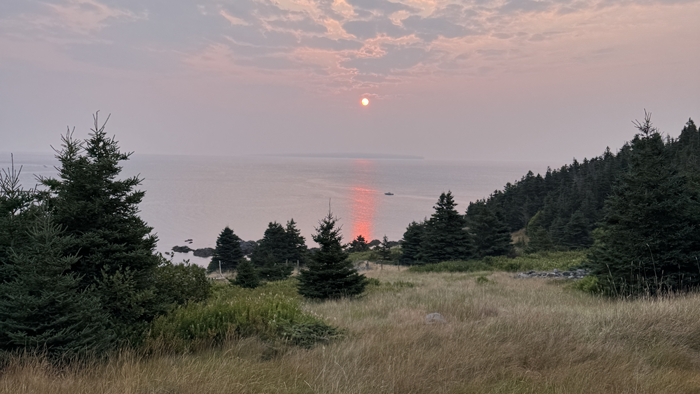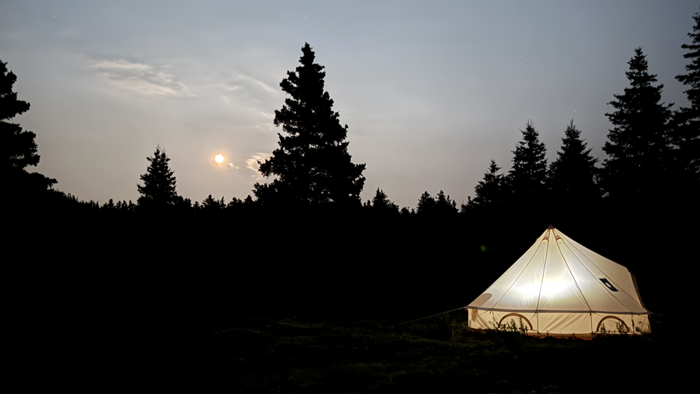FANE was founded in 2015 by four founding members—Prof. Dr. Sean McGrath (Philosophy, Memorial University), Prof. Dr. Barry Stephenson (Religious Studies, Memorial University), Prof. Dr. Kyla Bruff (Philosophy, Carleton University), and PD. Dr. Joachim Rathmann (Geography, Philosophy, University of Augsburg). They are all united by the deep conviction that the cause of our modern social crises lies in consumer society, according to Professor Barry Stephenson, one of the four founders, at the opening of the summer school. Together with us – four international students – the four university lecturers met for a week near the town of Cupids in Newfoundland. At the 100-hectare Burnt Head Retreat ranch, located away from Cupids and directly on the sea, owned by the other co-founder, Professor Sean McGrath, the small group wanted to find out how it is possible to live away from civilization without great luxury.
Historically, Bunt Head Retreat is of great significance to FANE. Until the 20th century, the bay was the longest continuously settled piece of land in North America by the British. Diaries, such as that of John Morgan, born in 1893, tell of the simple but happy life of the settlers in the 1910s. Shortly thereafter, the settlement was forced to move further inland because large-scale industrial fishing threatened their livelihood. John Morgan's simple way of life served as a model for us during the FANE Field School. His detailed descriptions of the landscape and way of life allowed us to feel the presence of the past.
Back to the roots – living like the settlers in Burnt Head
We students had tents at our disposal in the so-called “orchard.” Ruins of stone walls there bore witness to the settlers' agricultural use of these gardens. About a mile away, connected only by a narrow forest path, was the main house, which was the only one with solar power and a gas stove. While drinking water had to be fetched from Cupids, 20 minutes away via an official hiking trail, a five-mile-long water pipe that worked solely by gravity provided more or less running water for washing up.
We fed ourselves partly with the groceries we had laboriously carried to Burnt Head, but one focus of the project was to live primarily off what nature provided us directly. So, like the settlers in Burnt Head before us, the group set out early in the morning in a small boat to go fishing. We students gained practical experience not only while fishing, but also by filleting the fish on the beach. Fortunately, countless blueberries grew at the retreat, which sweetened our day. In addition, Sean, who has been building his house at the retreat for 15 years, always had manual tasks to do. Four of us replaced the supporting pillar in the house with a 200-kilogram crossbeam using only muscle power.
Where environmental philosophy meets Atlantic waves
In addition to these practical experiences, the summer school included daily lectures. We read and discussed classic texts from environmental philosophy, such as Thoreau, Schuhmacher, Snyder, and Hildebrandt. In addition to the official lectures and the manual, practical work, we students also had time to swim in the cold Atlantic Ocean, read on the terrace, or go on short hikes.
After three days, the second part of the field school began. At a scientific conference in Cupids, around 15 international speakers presented their papers on environmental philosophy. We students also had the opportunity to give presentations. I myself spoke about the role of the environment and its deterministic influence on ancient political crises in the historical work of the Stoic philosopher Poseidonius. After the two-day academic conference, the summer school came to an end.
Further information on the MWP “Research In-Situ” program can be found here.
Text: Etienne Pablo Dame, Max Weber Program



